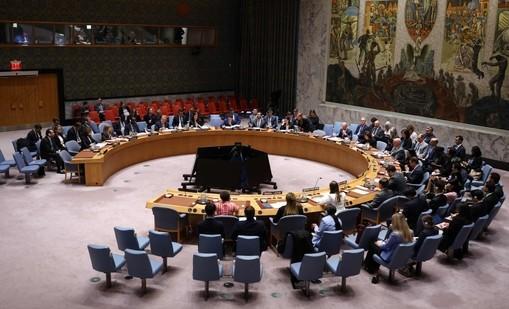
Was LeT involved? UNSC asks Pak on J&K attack, refuses to accept ‘false flag’ claim
The United Nations Security Council (UNSC) has taken a stern stance on the recent Pahalgam attack in Jammu and Kashmir, refusing to accept Pakistan’s “false flag” narrative on the incident. According to reports, UNSC members questioned whether the Lashkar-e-Taiba (LeT), a Pakistan-based terror outfit, was likely to be involved in the attack.
The Pahalgam attack, which took place on October 11, resulted in the death of three civilians, including a terrorist, and injured several others. The incident sparked widespread outrage and condemnation, with many calling for stern action against those responsible.
Pakistan, however, was quick to reject any involvement in the attack, claiming that it was a “false flag” operation designed to discredit the country and its government. Pakistan’s Foreign Office spokesperson, Zahid Hafeez Chaudhry, stated that the country’s intelligence agencies had “uncovered evidence” that suggested the attack was planned and executed by Indian intelligence agencies.
However, UNSC members were not convinced by Pakistan’s claims, and instead, demanded answers on whether LeT, a proscribed terrorist organization, was involved in the attack. LeT, which was founded by Hafiz Saeed, a militant Islamist leader, has a long history of carrying out attacks in India, including the 2008 Mumbai terror attacks that killed over 160 people.
According to reports, some UNSC members brought up the targeting of tourists on the basis of religion, highlighting the religiously motivated nature of the attack. The fact that the victims were all non-Muslims and that the attack was carried out in a predominantly Hindu area has led many to speculate that the attack was designed to spread fear and intimidation among the minority community.
Pakistan’s “false flag” narrative has been widely criticized by experts and officials, who argue that it is an attempt to deflect attention from the country’s own role in supporting terrorism in the region. India has long accused Pakistan of supporting terrorist groups, including LeT, and has provided evidence of Pakistan’s involvement in various attacks, including the 2008 Mumbai attacks.
The UNSC’s refusal to accept Pakistan’s claims is a significant development, as it comes at a time when tensions between India and Pakistan are running high. The two countries have a long history of conflict, and the Pahalgam attack has only added to the tensions.
In recent years, Pakistan has been facing increasing international pressure to crack down on terrorist groups operating on its soil. The country has been placed on the Financial Action Task Force’s (FATF) grey list, which requires it to implement anti-money laundering and counter-terrorism financing measures to prevent the financing of terrorist activities.
Pakistan’s failure to take concrete action against terrorist groups has led to widespread criticism from the international community, and its “false flag” narrative on the Pahalgam attack is unlikely to go unchallenged.
In conclusion, the UNSC’s refusal to accept Pakistan’s “false flag” narrative on the Pahalgam attack is a significant development in the ongoing conflict between India and Pakistan. The fact that UNSC members questioned whether LeT was involved in the attack highlights the organization’s role in addressing the root causes of terrorism in the region.
As the international community continues to monitor the situation, it is clear that Pakistan’s actions will be closely watched, and any attempts to deflect attention from its own role in supporting terrorism will be met with skepticism.
News Source:
https://x.com/ANI/status/1919603387328340406



